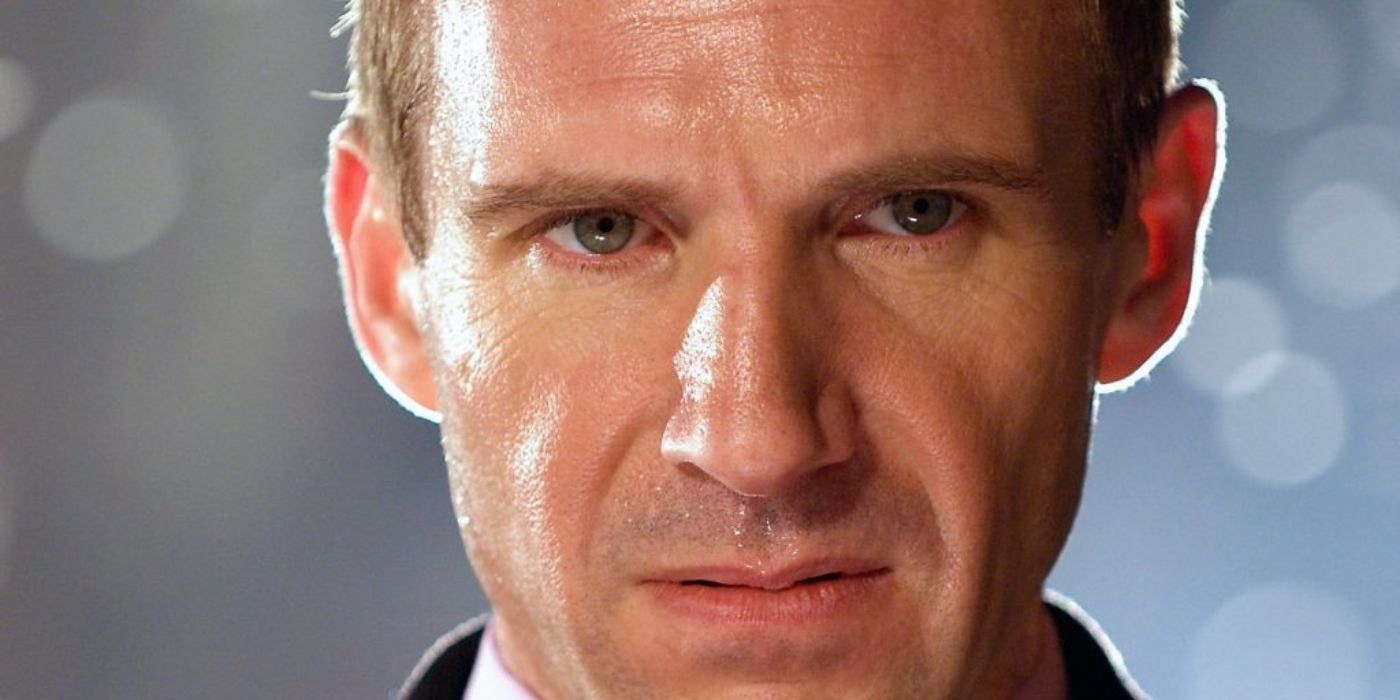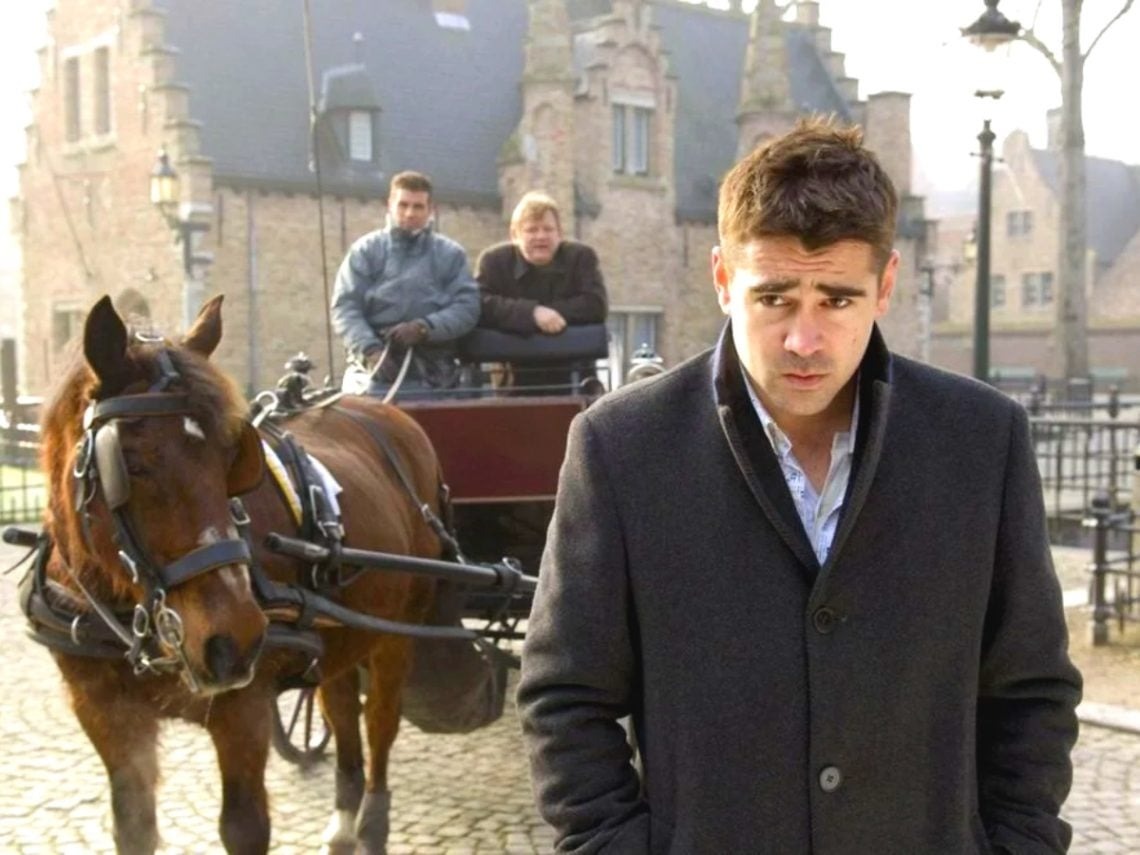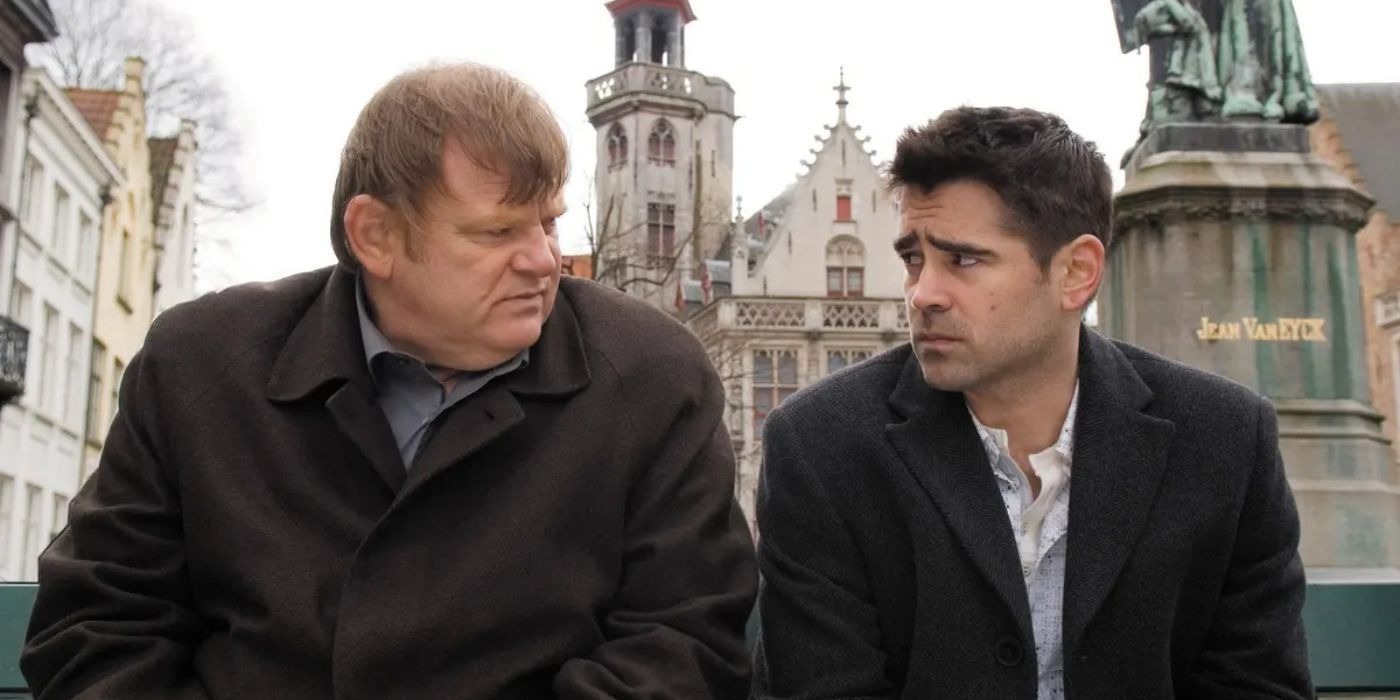This film marked Martin McDonagh’s rise as a director and showcased his unique style of blending dark comedy with drama. By presenting conflicts so outlandish they defy conventional seriousness, the movie paved the way for McDonagh’s later work, such as The Banshees of Inisherin.
The on-screen chemistry between Colin Farrell and Brendan Gleeson is both comedic and heartwarming, as the story explores whether their characters, Ray and Ken, are more adversaries than friends.

The Conflict Between Ray and Ken
The narrative follows Ray and Ken, two hitmen sent to Bruges, Belgium, to await further orders. Haunted by the accidental killing of a young boy during a previous mission, Ray finds Bruges oppressive, while Ken admires its historical charm.
Their interactions are laced with humorous exchanges, but the tension escalates when Ken receives instructions to eliminate Ray. This sudden shift transforms the film into a gripping tale where humor and crime collide in unexpected ways.
Ken’s Dilemma: Loyalty Versus Morality
Midway through the story, Ken learns that his true mission is to kill Ray, a decision made by their boss, Harry, as retribution for the accidental death of a child.
Though Ken doesn’t hold any affection for Ray, he recognizes the weight of Ray’s guilt and believes in offering him a second chance. As a professional hitman, Ken is torn between following orders and acting on his growing sense of empathy.
The moment Ken sees Ray contemplating suicide at a park, he hesitates, realizing the depth of Ray’s remorse. This pivotal scene underscores McDonagh’s refusal to provide easy answers, challenging audiences to grapple with the complex morality of the characters.
Ken’s eventual choice to spare Ray reflects his belief in redemption, though it also reveals his own struggle to reconcile his profession with his humanity.
Harry’s Principles and His Tragic End
Harry is portrayed as a villain with a rigid code of ethics, which he uses to maintain a facade of superiority. His most unyielding rule is that anyone responsible for a child’s death must face the ultimate penalty, even if the act was accidental. Harry claims he would end his own life under such circumstances, a claim that sets the stage for his dramatic conclusion.
When Harry mistakenly believes he has killed a child—unaware that the victim was a dwarf actor dressed as a schoolboy—he follows through on his moral code and takes his own life.

This decision highlights his hypocritical nature; Harry clings to his principles not out of genuine conviction but to preserve his ego. The irony of his fate serves as a fitting end, mirroring the tragic circumstances surrounding Ray.
Bruges as a Character and Symbol
The city of Bruges plays a central role, its idyllic charm contrasting sharply with the grim actions of the characters. Harry’s intention in sending Ray to Bruges was to provide a peaceful setting for his final days, but the city’s beauty only deepens Ray’s guilt. For Ken, however, Bruges becomes a source of solace and reflection, its serenity highlighting his internal conflict.
The juxtaposition of Bruges’ innocence with the violence of its visitors underscores the film’s themes of redemption and moral ambiguity.
Even as the city’s timeless beauty offers a haven, it cannot shield the characters from the consequences of their actions. This contrast culminates in Ken’s tragic fall in the city’s center, a visual metaphor for the destructive impact of their choices.
Decoding the Ending of In Bruges
The conclusion of In Bruges masterfully weaves themes of morality, redemption, and hypocrisy. While Ray wrestles with his sense of unworthiness, Harry stubbornly clings to a self-righteous persona.
Ken emerges as the moral compass, guided by the influence of Bruges itself. The city’s tranquility inspires Ken to act on his convictions, even as violence continues to consume those around him.
Through its blend of dark humor and moral complexity, In Bruges invites viewers to reflect on the blurred lines between good and evil. By challenging traditional notions of justice and redemption, McDonagh crafts a narrative that resonates long after the final scene.



